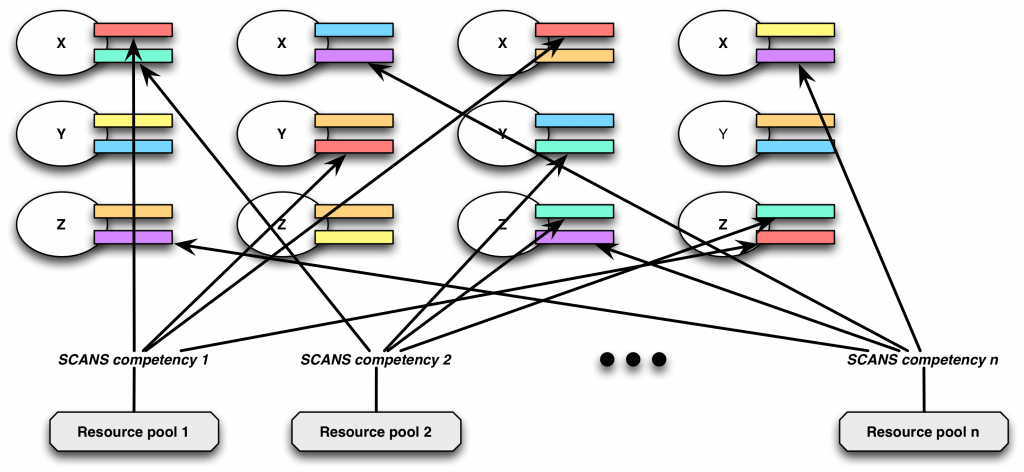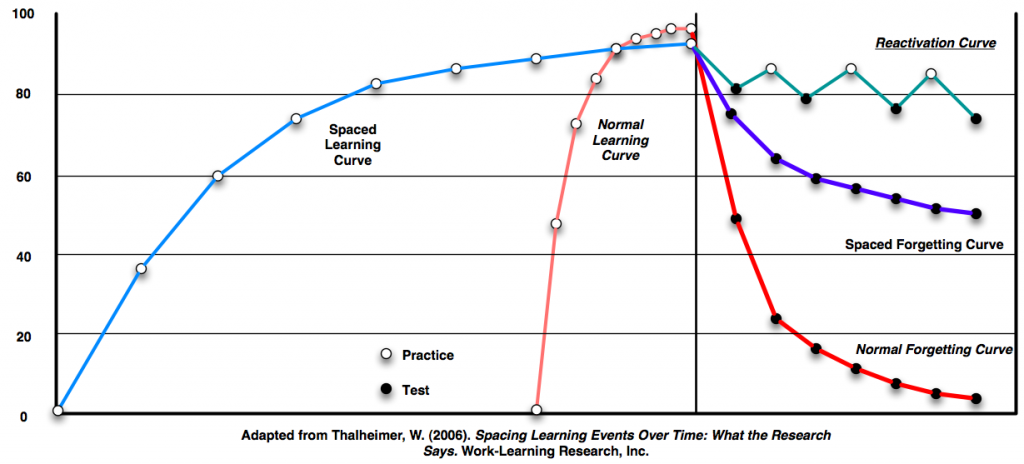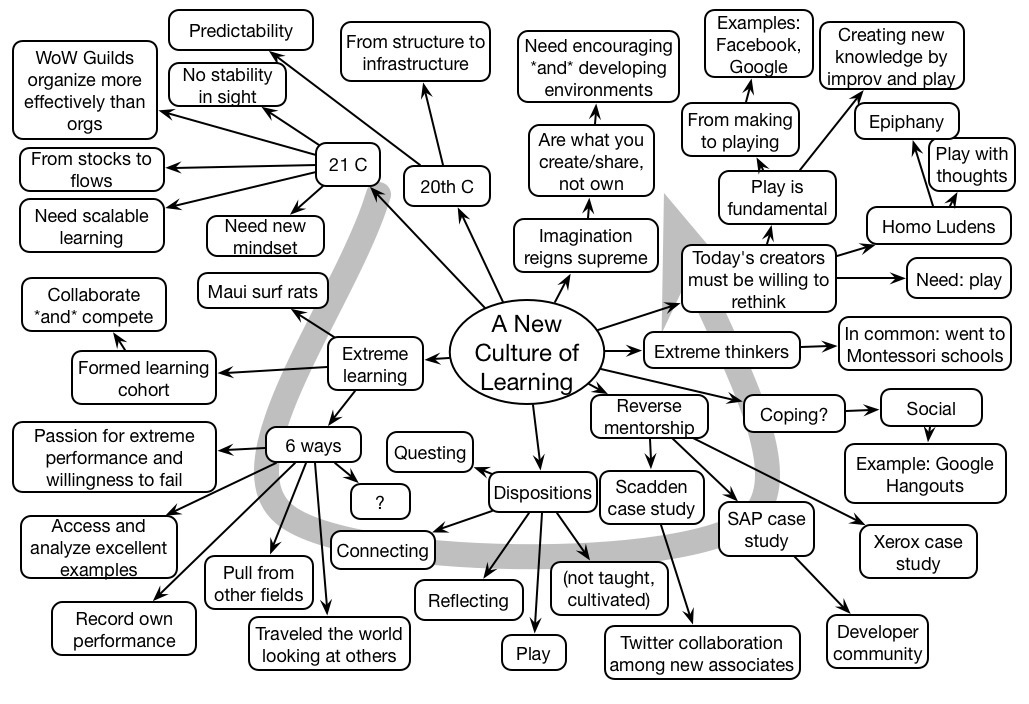David Kelly posted the following:
Lifehacker has a series called “How I Work. Every Wednesday they feature a new guest and the gadgets, apps, tips, and tricks that keep them going. It‘s a very interesting series that gives you a glimpse into how different people work and solve problems.
After recently seeing Daniel Pink‘s interview some colleagues and I thought it would be interesting to answer these questions as well as a fun way to share and get to know each other better. I invite you to participate as well – I‘ll link other people‘s postings at the bottom of this post.
I decided to join in:
Location
Walnut Creek, CA
Current Gig
Executive Director of Quinnovation and Senior Director of Interaction & Mobile for the Internet Time Alliance.
Current mobile device
iPhone 4 & (original) iPad
Current computer
MacBookPro 13″ (w/ Apple Monitor)
One word that best describes how you work
Interruptedly (and, yes, I made that word up)
What apps/software/tools can’t you live without?
Looking at what’s open or has been recently: Safari, TweetDeck, Mail, Skype, Reminders, iCal, Word, Keynote, Notes, OmniGraffle, & OmniOutliner.
I keep up with what’s new with Safari and TweetDeck, maintain communication channels with Mail and Skype, keep myself organized with iCal and Reminders, write with Word and Notes, plan and present with Keynote, and think things through with OmniGraffle and OmniOutliner.
Somewhat compact and crowded. I moved from a bigger desk to our smallest room to accommodate the changing needs of our kids. The room also houses a couch that becomes a bed for guests, and some shelves, so there’s not a lot of space. It’s organized for efficiency and effectiveness, not aesthetics.
What’s your best time-saving trick?
To put things into my calendar or my reminder list now!
What’s your favorite to-list manager?
I struggled after losing Palm Desktop, but finally have settled on Reminders (Apple’s tool), as it synchs across devices seamlessly.
Besides your phone and computer, what gadget can’t you live without?
Definitely my iPad. It replaces computer on many trips, and serves as a content and interactive device at times when I’m in more leisure than on the go. If that’s cheating, it’d be a pocket tool kit: usually the Coast micro-tool, or Swiss-Tech Micro-Tech when traveling (no blade). Always need a file, screwdriver, …
What everyday thing are you better at than anyone else?
I’d like to say diagramming, representing models, but I don’t know if that’s ‘everyday’. If not, I’d say taking what ever’s left over in the fridge and making a real meal out of it.
What do you listen to while you work?
Not bloody much. I can’t listen to most music while working, as the lyrics interfere with my thinking.
Are you more of an introvert or an extrovert?
I’m definitely an introvert, but I’m also a ham (a nice tension, eh?). So I don’t mind being on stage, but as soon as I’m off I go back to ‘I wonder if someone will talk to me’, and get drained when I’m around too many people. I work best in small groups.
What’s your sleep routine like?
I work hard to get a regular eight hours, having read the research. So it’s usually to bed sometime between 10 and 11, and the house wakes up around 6. Travel wreaks havoc with that, but caffeine helps.
Fill in the blank. I’d love to see _______ answer these same questions.
Alan Kay or John Seely Brown
What’s the best advice you’ve ever received?
To be myself.





